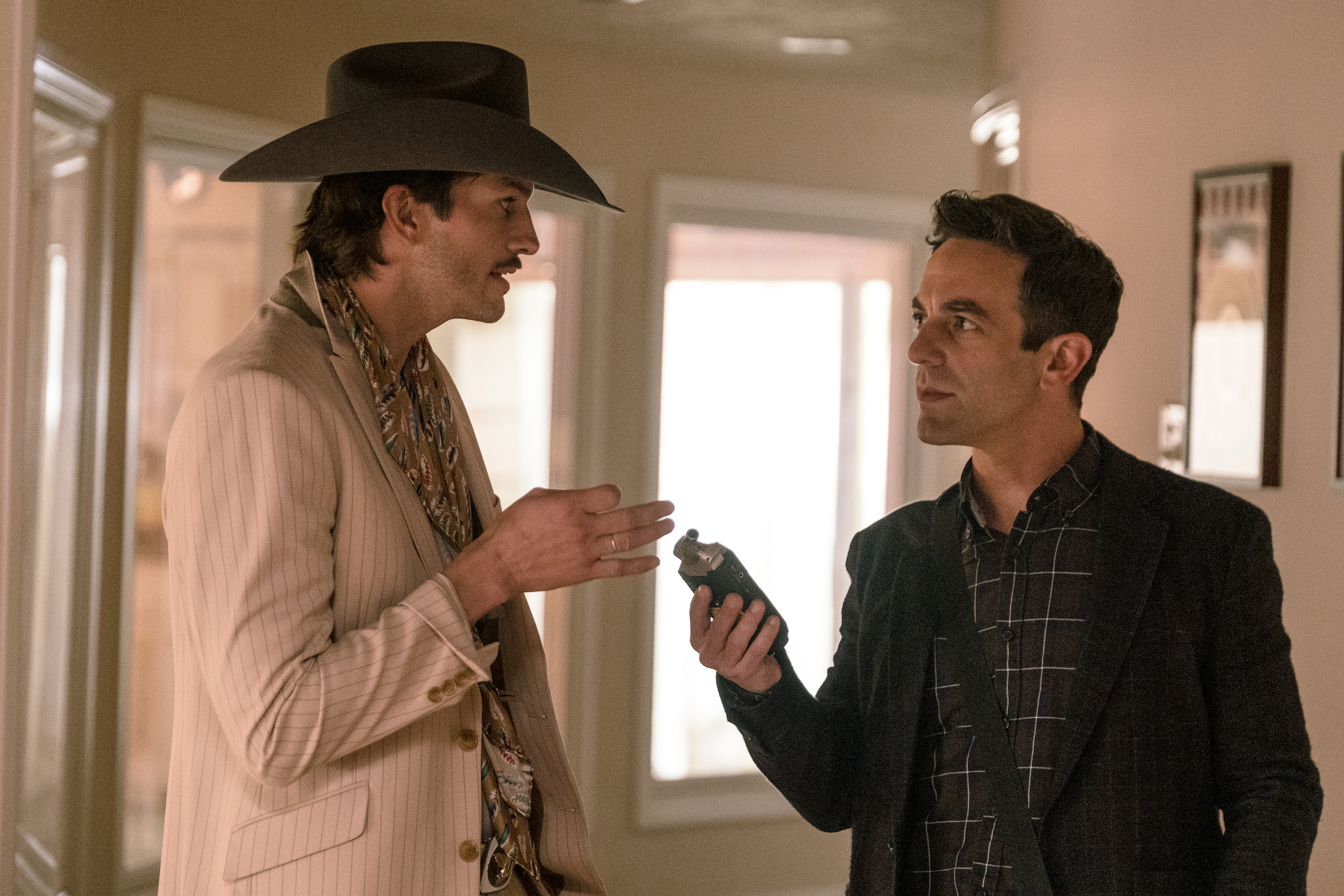
There’s so much to skewer in the expensive-sneaker-wearing, podcast-obsessed, swipe-left culture of the young urban modern citizen that it’s a wonder any writer-director knows where to begin. But B.J. Novak covers a surprisingly wide swath of territory in his directorial debut, Vengeance. Novak himself stars as Ben Manalowitz, a New York writer who’s always hustling for the next story. He gets a call informing him that a woman he’d casually hooked up with, Abilene, has died. Because she’d led her family to believe he was a serious boyfriend, he’s summoned to West Texas for her funeral. There he learns from Abilene’s brother, Ty (Boyd Holbrook), that she might have been murdered.
Ben doesn’t want to get involved—until he smells a podcast idea. He connects with a hotshot producer back in New York, Issa Rae’s Eloise, and proposes a series about, you know, the death of American identity and stuff. It will be called Dead White Girl.

Novak is a sly one, and though the script is clever and the direction certainly serviceable, it’s his face that really holds you: with those half-skeptical, half-trusting eyes, he has the visage of a person who has probably always looked a bit like a little old man, even as a baby. As Ben, he’s a knowing naif, eagerly exploring the desolate West Texas landscape in his rented Prius. He learns the hard way not to look down on Abilene’s family, and he eats his first deep-fried Twinkie. He absorbs words of wisdom from a smooth-talking local record producer, Quentin Sellers (Ashton Kutcher), who spins a persuasive argument against the evils of Spotify’s algorithms: “You’re just hearing your voice played back at you. How are you supposed to fall in love?”
But mostly Ben learns about the necessity of listening to the needs of other people, and not just for the sake of a podcast. Vengeance is a small but ambitious film, and the murder mystery is its weakest element: Novak has so many threads going that he doesn’t quite know how to tie them up. But he’s made a shrewd satire that’s a pleasure to watch. His observations are quietly on the money. And he’s totally right about Spotify.
More Must-Reads from TIME
- Cybersecurity Experts Are Sounding the Alarm on DOGE
- Meet the 2025 Women of the Year
- The Harsh Truth About Disability Inclusion
- Why Do More Young Adults Have Cancer?
- Colman Domingo Leads With Radical Love
- How to Get Better at Doing Things Alone
- Michelle Zauner Stares Down the Darkness
Contact us at letters@time.com